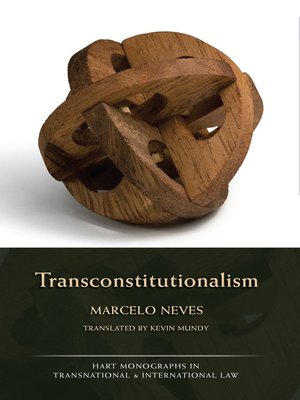Transconstitutionalism
ebook ∣ Hart Monographs in Transnational and International Law
By Marcelo Neves

Sign up to save your library
With an OverDrive account, you can save your favorite libraries for at-a-glance information about availability. Find out more about OverDrive accounts.
Find this title in Libby, the library reading app by OverDrive.



Search for a digital library with this title
Title found at these libraries:
| Library Name | Distance |
|---|---|
| Loading... |
Transconstitutionalism is a concept used to describe what happens to constitutional law when it is emancipated from the state, in which can be found the origins of constitutional law. Transconstitutionalism does not exist because a multitude of new constitutions have appeared, but because other legal orders are now implicated in resolving basic constitutional problems. A transconstitutional problem entails a constitutional issue whose solution may involve national, international, supranational and transnational courts or arbitral tribunals, as well as native local legal institutions. Transconstitutionalism does not take any single legal order or type of order as a starting-point or ultima ratio. It rejects both nation-statism and internationalism, supranationalism, transnationalism and localism as privileged spaces for solving constitutional problems. The transconstitutional model avoids the dilemma of 'monism versus pluralism.' From the standpoint of transconstitutionalism, a plurality of legal orders entails a complementary and conflicting relationship between identity and alterity: constitutional identity is rearticulated on the basis of alterity. Rather than seeking a 'Herculean Constitution,' transconstitutionalism tackles the many-headed Hydra of constitutionalism, always looking for the blind spot in one legal system and reflecting it back against the many others found in the world's legal orders.







